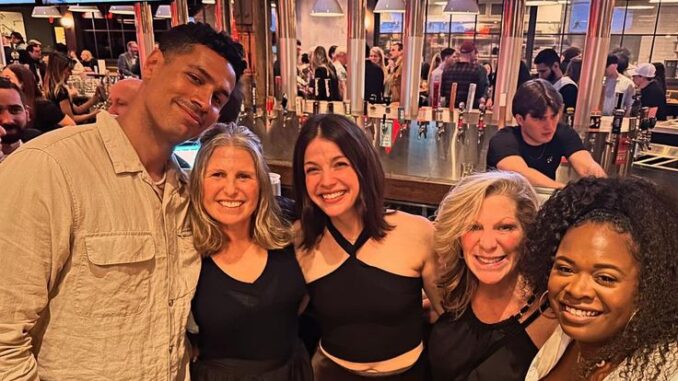
Season 5 of The Good Doctor begins with an episode aptly titled “New Beginnings,” and from the opening scene, it’s clear that the show is stepping into a new chapter. This premiere is more than just a continuation—it’s a tonal shift that introduces corporate transformation, emotional recalibration, and fresh dynamics within the walls of San Jose St. Bonaventure Hospital. With familiar faces returning and new challenges on the horizon, Episode 1 delivers a blend of hope, tension, and foreshadowing that sets the stage for the entire season.
The episode opens with Shaun Murphy and Lea Dilallo basking in the glow of their recent engagement. After enduring the pain of loss in Season 4, including Lea’s miscarriage, the couple is now looking ahead to marriage. Lea is excited and eager to start planning, while Shaun—being Shaun—is more cautious, overwhelmed by the unpredictability of wedding traditions. He wants things to go perfectly, but perfection in human relationships isn’t easily defined. When Lea proposes throwing a big engagement party, Shaun agrees but clearly feels out of place with the emotional and social expectations. It’s the beginning of a new emotional arc for Shaun, where he must learn to balance structure with spontaneity in both medicine and love.
Back at the hospital, things are also in flux. The Guatemala mission is behind them, and the doctors are settling back into their routines. But the rhythm is quickly disrupted by a new arrival—Salen Morrison, a seemingly charming woman played by Tony Award winner Rachel Bay Jones. At first, she pretends to be merely a patient’s friend, but by the end of the episode, her true identity is revealed: she’s the hospital’s new owner, and she’s already implementing changes. With a tech-forward vision and corporate tone, Salen is set on rebranding the hospital’s culture. She pushes for marketability, encouraging staff to smile more and adopt a “customer-first” mindset that makes several of the doctors—especially Dr. Glassman and Dr. Lim—uneasy.
Meanwhile, two new surgical residents join the team: Dr. Asher Wolke and Dr. Jordan Allen. Asher, a former Hasidic Jew who left his community to pursue medicine, brings a dry wit and unexpected vulnerability. Jordan, confident and spiritually grounded, offers a no-nonsense presence that both complements and challenges the team dynamic. Their arrival doesn’t just expand the roster—it reshapes it, adding younger perspectives to the already emotionally layered ensemble. The new class symbolizes the changing guard and introduces new philosophies to a team used to routine.

The medical case of the episode centers on a young woman named Madeline suffering from seizures. Her surgery involves high risks, including potential loss of motor functions. Shaun and his colleagues are faced with a difficult decision, weighing the ethics of the procedure against the patient’s hopes and fears. It’s a familiar Good Doctor theme: science versus emotion, data versus humanity. Shaun, who often leans on logic, is challenged to consider not just what’s medically correct but what’s emotionally right for the patient. This case mirrors the overarching conflict of the episode: how much change is too much, and who gets to decide?
While the hospital navigates new policies and fresh faces, one emotional thread runs quietly but powerfully in the background: the shifting relationship between Dr. Shaun Murphy and Dr. Aaron Glassman. Glassman, once Shaun’s closest confidant and mentor, seems emotionally disconnected, still reeling from the collapse of his marriage and recent professional disillusionment. Shaun notices the distance and feels unsettled by it. Their bond, which has always been the emotional backbone of the series, is now strained—leaving Shaun more isolated as he faces uncertainty on multiple fronts.
The episode’s final scenes bring everything to a head. At the engagement party Lea has thrown, Shaun becomes overstimulated and anxious, leading to a moment of public discomfort. Lea, realizing she pushed too hard, apologizes, and the couple agrees to focus on what truly matters: understanding each other, rather than conforming to social norms. It’s a subtle but beautiful scene, showing how their relationship continues to grow not through grand gestures, but through honest, difficult conversations.
As the hospital’s leadership changes hands and personal relationships evolve, one thing is clear: the world of The Good Doctor is shifting. Salen Morrison, with her corporate lingo and unapologetic efficiency, represents a new kind of challenge—one that can’t be solved with surgery or science. Her presence will test the hospital’s moral compass and force each doctor to question what they stand for.
